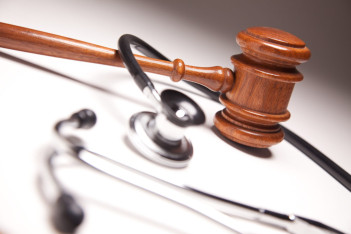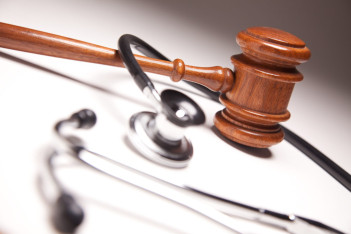Registration of disability
Disability registration is an important and responsible process that requires not only medical conclusions, but also compliance with a number of legal norms. An important component of this process is accurate documentation and compliance with procedures specified by law.
Typically, the process of obtaining disability can be complex and requires attention to detail, as well as knowledge of legal aspects related to your rights and obligations. In this context, legal assistance is important, as it allows you to ensure compliance with all requirements and reduce the risks of refusal or delay in the process.
Legal stages of registration of disability
Disability registration is a complex and multi-stage process that requires not only medical examinations, but also the right legal approach:
- Contacting a doctor: To register a disability, you must contact your attending physician, who conducts an initial examination and refers the patient for a more detailed medical examination.
- Medical commission: After the initial examination, the doctor sends the patient to a medical commission, which must confirm or deny the presence of a disease that requires registration of disability.
- Collection of documents: In the process of preparing for the examination, it is necessary to collect documents for obtaining disability, including medical reports, test results and examinations, as well as other documents confirming the state of health.
- Applying to the Medical and Social Expertise Bureau: The next step is to contact the Medical and Social Expertise Bureau (MSE). To do this, you need to submit an application and provide the entire collected package of documents.
- Passing the examination: Based on the documents provided and a personal examination, the ITU commission makes a decision on assigning a disability, determines its degree and develops an individual rehabilitation program.
- Receiving the results: After making a decision, the ITU issues a conclusion that confirms the disability status. In case of refusal, you can appeal the decision in court. It is possible that the disability commission will be removed.
To avoid possible difficulties and errors, it is important to know all the key stages and follow the established procedures.
Conditions for providing services for obtaining disability
The disability registration service involves compliance with clear conditions:
- Presence of a disease: The service for registration of disability is provided in the presence of a disease or condition that significantly limits life activity.
- Documentary evidence: Medical documents are required to register a disability, they must be in order to confirm the diagnosis and health status.
- Patient consent: to register a disability, the consent of the patient or his legal representative is required.
- Compliance with legislation: All procedures must be carried out in accordance with current legislation and medical standards.
Compliance with all conditions significantly increases the chances of a positive outcome. And in case of difficulties or refusal, it is advisable to use legal support to protect your rights.
Conditions under which the disability group registration service cannot be provided

Absence of disease: If the medical commission does not confirm the presence of a disease that significantly affects life.

Violation of procedures: Failure to comply with established legal procedures and standards.

False information: Providing knowingly false information about the state of health.
How to get a disability group on your own?
The procedure for registering a disability requires a thorough approach and preparation. Independently completing all stages is possible thanks to the following steps:
- Studying the legislation: Familiarize yourself with the legislative acts regulating the process of registering disability, what doctors you need to see for disability.
- Consultation with a doctor: Get detailed advice from your doctor and find out what documents are required to register disability.
- Collecting documents: Make a list of the necessary documents and start collecting them in advance.
- Contacting the Medical and Social Expertise Bureau: Find out the work schedule and features of the local bureau of medical and social expertise. Perhaps there is a function for remote registration of disability.
- Using online resources: Find and study available online resources and instructions for registration of disability.
To avoid mistakes and obtain the necessary status without unnecessary delays, it is important to act in accordance with official rules. If difficulties arise, legal support can significantly simplify the process and help you obtain legal social guarantees.
Common questions about obtaining a disability group
Question
Which doctors do I need to see to register for disability?
Answer
Therapist (or pediatrician for children): Initial examination and issuance of referrals to other specialists. Summarization of data and preparation of a medical report. Neurologist: Examination in the presence of neurological diseases (strokes, cerebral palsy, epilepsy, etc.). Surgeon (or orthopedist): Examination in the presence of orthopedic or surgical problems (amputations, injuries to the musculoskeletal system). Cardiologist: Examination of cardiovascular diseases (heart attacks, heart failure). Psychiatrist: Examination of mental or behavioral disorders. Ophthalmologist: Examination of diseases of the visual organs (glaucoma, kataract, blindness). Otolaryngologist (ENT): Examination of diseases of the hearing organs and upper respiratory tract (deafness, hearing loss). Endocrinologist: Examination of endocrine diseases (diabetes mellitus, thyroid dysfunction). Oncologist: Examination of oncological diseases. Rheumatologist: Examination of rheumatic diseases (arthritis, systemic lupus erythematosus). Gastroenterologist: Examination of diseases of the gastrointestinal tract. Pulmonologist: Examination of diseases of the respiratory system (asthma, COPD). Urologist (or nephrologist): Examination of diseases of the genitourinary system and kidneys.
Question
What doctors do I need to see to get disability benefits for oncology?
Answer
To register for disability due to oncology, you need to see an oncologist who will confirm the diagnosis and the extent of the disease, as well as a therapist for a comprehensive conclusion and referral to a medical and social examination (MSE). Additionally, consultations with other specialists may be required depending on complications and concomitant diseases.
Question
What documents are needed to register for disability?
Answer
The list includes medical reports, examination results, passport, SNILS and an application.
What depends on the cost of the disability registration service?
The price of legal assistance in registering a disability may depend on several key factors. First of all, this is the complexity of a particular case: if an appeal against the decision of the medical and social expert commission (MSEC) or the collection of additional evidence is required, the service may cost more. The volume of necessary assistance also plays an important role - from a one-time consultation to full support of the process. The experience and reputation of a lawyer or law firm also affect the price: more qualified specialists usually set higher tariffs. In addition, regional features, the urgency of the service, and the need to represent the client's interests in court or state bodies may affect the cost.
ConclusionDisability registration is not only a medical but also a legal process that requires attention and proper documentation. In case of difficulties in obtaining disability status, qualified lawyers can provide assistance at all stages: from consulting to appealing decisions that have a negative impact. Involving professionals in this matter will help ensure your rights and achieve a fair result in the shortest possible time.



































